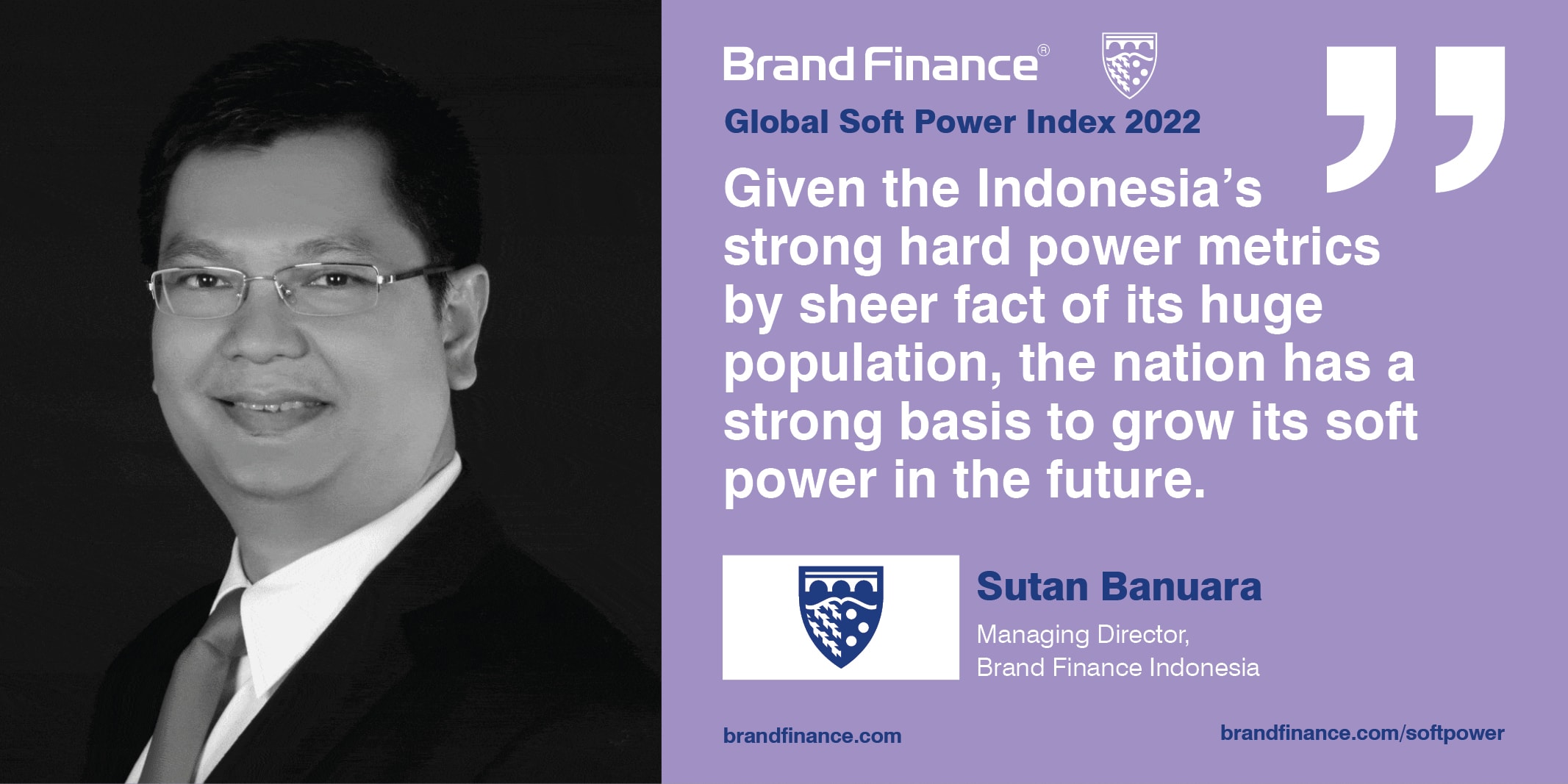This article was originally published in the Global Soft Power Index 2022.

Indonesia is a country with the 16th largest economy in the world, the 4th largest population in the world, and a total of 278 million people who are currently enjoying a demographic bonus with strong population growth – yet ranked just 47th on the Global Soft Power Index.
Indonesia has very diverse natural wealth across both mining and agriculture, becoming the largest producer of crude palm oil in the world, surpassing Malaysia, and the 3rd largest coal exporter in the world after China and India. Given the nation’s strong hard power metrics by sheer fact of its huge population, the nation has a strong basis to grow its soft power in the future.
One possible opportunity is the global movement towards electrification, which will likely require substantial battery usage across the world. A key ingredient for modern batteries in nickel – and Indonesia is estimated to have around 52% of the world’s known nickel reserves. The Indonesian Government is seeking to develop a domestic battery industry with a view to using the significant nickel reserves, and in doing so, upgrade its rating as ‘a leader in science’ from a very low 1.8.

In the tourism sector, Indonesia obtained a 5.7 rating as ‘a great place to visit’, a significant upgrade from last year’s rating of 4.9. This places Indonesia between significant tourism destinations in Iceland and South Africa, and reflects Indonesia’s ability to attract tourists to beaches, visitors to UNESCO world cultural heritage site Borobudur temple, and business travelers to its growing economy.
The Indonesian Government seeks to develop its tourism industry by continuing to develop Top 5 super priority destinations, such as: Lake Toba which is the largest volcanic lake in the world, Mandalika, Likupang, Labuhan Bajo and Brorobudur Temple to provide a variety of tourist destinations for domestic and foreign tourists to complement and expand beyond Bali, which has been a world-class tourist destination for a decades.
The government's response to handling COVID-19 is rated better than average for all countries, correlated with the administration of 114 million recipients of full-dose vaccines. Indonesian scientist Carina Joe contributed as one of the researchers behind the Oxford Astra-Zeneca team, and in doing so, helped to build the Indonesian nation’s brand as ‘a leader in science’. With a rating in that area of just 1.8, there is still a lot of work to be done in this area.
With so many valuable tangible and intangible assets and great potential to be developed, why is Indonesia ranked as only 47th out of 120 countries? This is certainly a lot of work remaining for the Indonesian government to improve the ranking of the Global Soft Power Index. While hard power developments around economics, infrastructure and natural resources are important, the Indonesian government will need to go beyond building mass infrastructure development programs to manage integrated public communications and campaigns so that the perceptions reside in the mind of the stakeholders (entrepreneurs, investors, visitors, tourists, students) of the nation brand are aligned with the goals of the Indonesian nation to take its rightful position as a global competitor.

